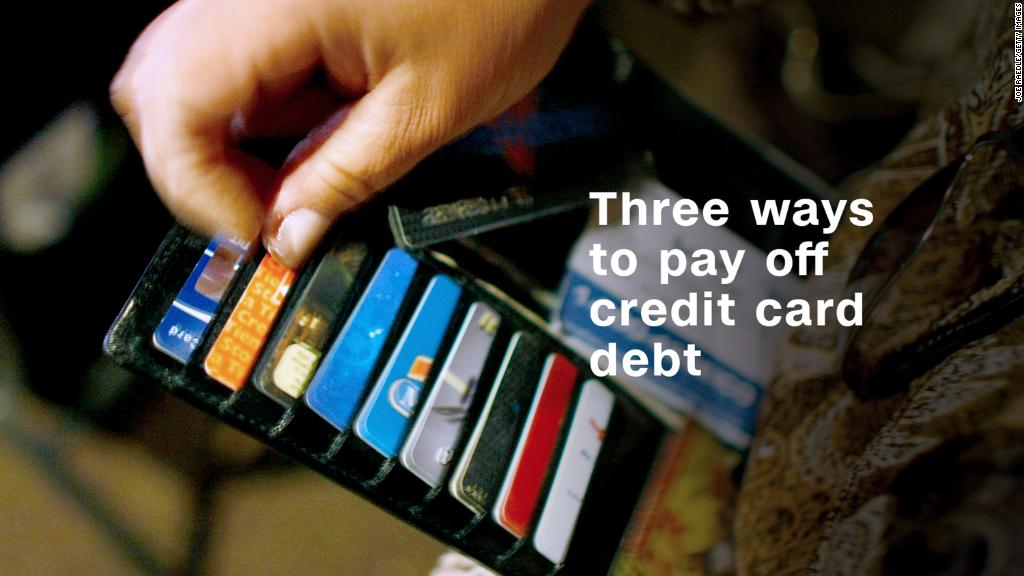
Quick: What's the interest rate on your credit card?
Don't know? You're not alone, and you're also not likely to know if your rate goes up.
"Many people don't know their interest rate," says Majd Maksad, a former Citi executive and CEO of Status Money, a site that helps people compare their financial picture, including credit card interest rates, with information from more than 16 million Americans. "You tell them it's 5%, but they still don't know if they feel good or bad about it. By looking at others' interest rates you can say 'Great! I did well' or 'I can do better'."
There are two ways variable interest rates change: the banks can change its rate, or the index the bank is pegged to can change. If the bank changes its rate, it needs to tell you. If the index changes, the bank doesn't need to alert you.
Now is a good time to share and compare your interest rate and the details of your card agreement (which you can find here) because we are in what economists call a rising rate environment. That means when the Federal Reserve raises interest rates (and it's expected to be "when" not "if"), that will indirectly impact the rate you pay.
"And the bank is not required to tell you about that rate change," says Maksad. "Banks are required to tell you when they change the rate or the structure of your rate. When you have a variable priced loan and there are changes in the Federal Reserve rate, they will impact the rate you pay. And the bank is not required to tell you your rate changed."
Generally, credit card companies can opt to raise your interest rate on future purchases at any time for any reason, as long as they give you a 45-day-notice, according to the Credit Card Accountability, Responsibility, and Disclosure Act of 2009, known as the CARD act.
The law says you can opt out and close your account, without a penalty, and without the bank demanding you pay your balance in full immediately or defaulting your account. But since length of credit is a component of your credit card score (the longer you keep a card open and in good standing, the better for your score), you'll want to weigh the benefits of closing it.
These are a number of reasons a bank can raise interest rates on your current balance.
Your promotional rate expires
Cards with promotional interest rates of 0%, sometimes called balance transfer cards, have a window of time with no interest rate. The idea is you transfer a big debt onto the card and pay it off during the zero-interest window without incurring further interest charges.
But you have to watch the clock. As soon as the promo time expires -- periods range from 6 to 21 months -- your interest rate will reset at a much higher rate.
Though you may be attracted to a card because of its promotional offer, be sure to examine the interest rate after the offer expires -- it may be a deal breaker.
You're late
There's no three strikes here -- only two. If you're late on two consecutive payments -- 60 days or more, total -- the issuer can apply the penalty rate.
The practice of "universal default" is outlawed in the CARD act. That means that if you don't pay on one credit card, other cards cannot pile-on and also increase your interest rate if you're in good standing.
One slight exception: if you have two cards from one issuer, both rates can increase if you're late on only one of them.
You've completed a debt management program
This sounds backwards, doesn't it? You should be rewarded with a lower interest rate for completing a debt management program, right?
Wrong.
The temporary lower interest rate is the debt management program.
If you're in deep trouble with credit card debt, you may opt to participate in a debt management program, in which creditors may agree to lower your interest rates or waive certain fees for a period of time.
These plans set up regular, structured payments over several years. If you drop out of one of these programs, or complete the program and opt to retain your credit card account, your interest rate will reset to the rate prior to enrollment.
You leave active military service
Active members of the military have their credit card interest rate charges, including late fees and other transaction fees, capped at 6%, according to the Servicemembers Civil Relief Act.
Some issuers offer special benefits to veterans and military family members as well, but the interest rate cap is reserved for active duty military.
The rate your variable interest rate is pegged to goes up
If you have a variable interest rate card, as most people do, you will be charged a certain percentage plus the index the card is pegged to, such as the prime rate or Libor. (If you have a fixed-interest rate -- and not many people do anymore because it is more profitable for companies to have variable rates pegged to a rising index -- you'll receive a 45-day notice if your issuer wants to raise your rate.)
The prime rate is the lowest rate of interest that money can be borrowed commercially, and it's the most widely used benchmark to set credit card rates (and rates for other loans). It's based on the federal funds rate, which is set by the Federal Reserve.
"When [the federal funds rate] goes up, the banks are starting to reap that benefit," says Maksad.
The average American who has $50,000 of debt will stand to pay a lot more interest, says to Maksad. Assuming a card is variably priced and the Fed increases rates by 0.75% this year, as expected, the average person will pay $375 more interest annually.
Best way to avoid all this? Eliminate that credit card debt.
